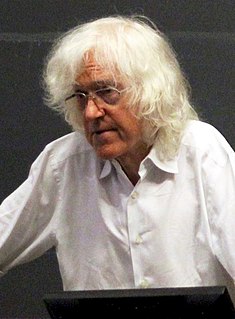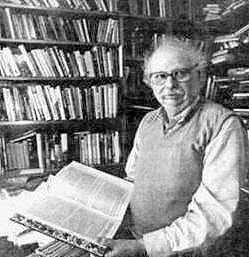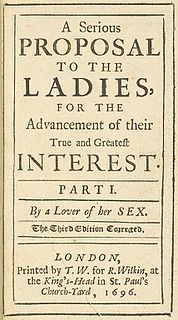A Quote by Derek Parfit
Criticizing himself again, Sidgwick writes: I am not an original man: and I think less of my own thoughts every day.
Related Quotes
The denial of any distinction between foreseen and intended consequences, as far as responsibility is concerned, was not made by Sidgwick in developing any one 'method of ethics'; he made this important move on behalf of everybody and just on its own account; and I think it plausible to suggest that this move on the part of Sidgwick explains the difference between old-fashioned Utilitarianism and the consequentialism, as I name it, which marks him and every English academic moral philosopher since him.
Condemn no man for not thinking as you think. Let every one enjoy the full and free liberty of thinking for himself. Let every man use his own judgment, since every man must give an account of himself to God. Abhor every approach, in any kind or degree, to the spirit of persecution, if you cannot reason nor persuade a man into the truth, never attempt to force a man into it. If love will not compel him to come, leave him to God, the judge of all.
Marriage I think For women Is the best of opiates. It kills the thoughts That think about the thoughts, It is the best of opiates. So said Maria. But too long in solitude she'd dwelt, And too long her thoughts had felt Their strength. So when the man drew near, Out popped her thoughts and covered him with fear. Poor Maria! Better that she had kept her thoughts on a chain, For now she's alone again and all in pain; She sighs for the man that went and the thoughts that stay To trouble her dreams by night and her dreams by day.
When you catch yourself thinking negative thoughts-thoughts that negate your highest idea about a thing-think again! I want you to do this, literally. If you think you are in a doldrum, in a pickle, and no good can come of this, think again. If you think the world is a bad place, filled with negative events, think again. If you think your life is falling apart, and it looks as if you'll never get it back together again, think again.
For my part I think the Learned, and Unlearned Blockhead pretty equal; for 'tis all one to me, whether a Man talk Nonsense, or unintelligible Sense, I am diverted and edified alike by either; the one enjoys himself less, but suffers his Friends to do it more; the other enjoys himself and his own Humour enough, but will let no body else do it in his Company.








































